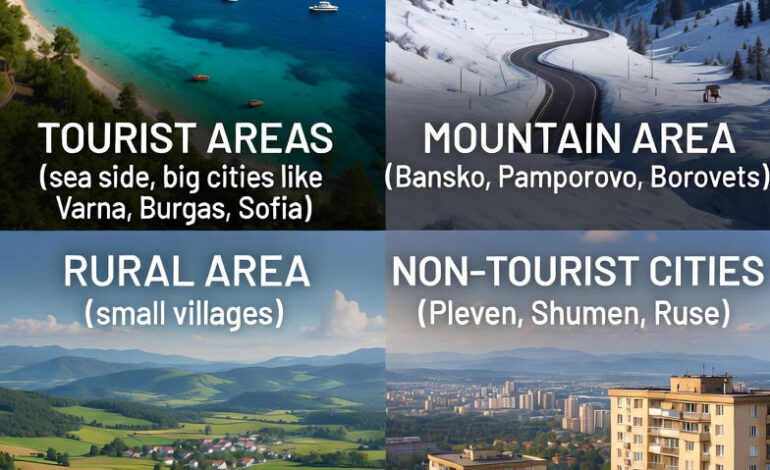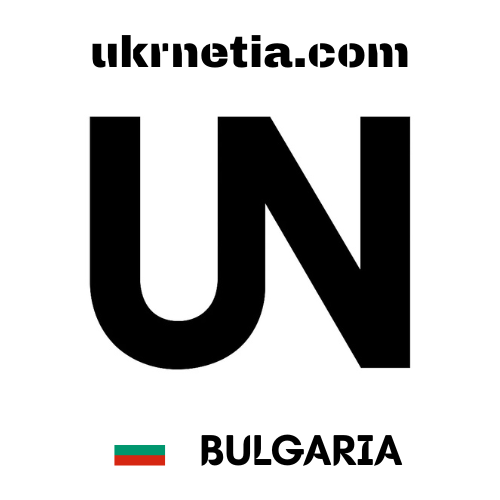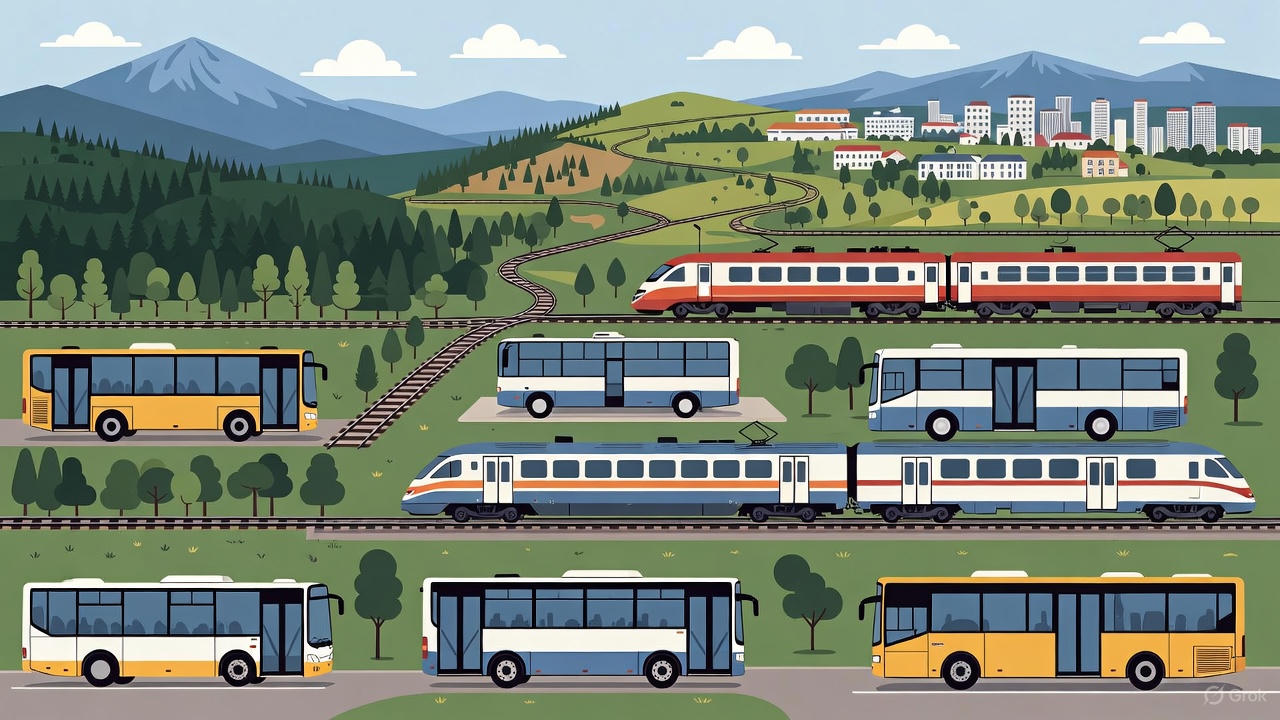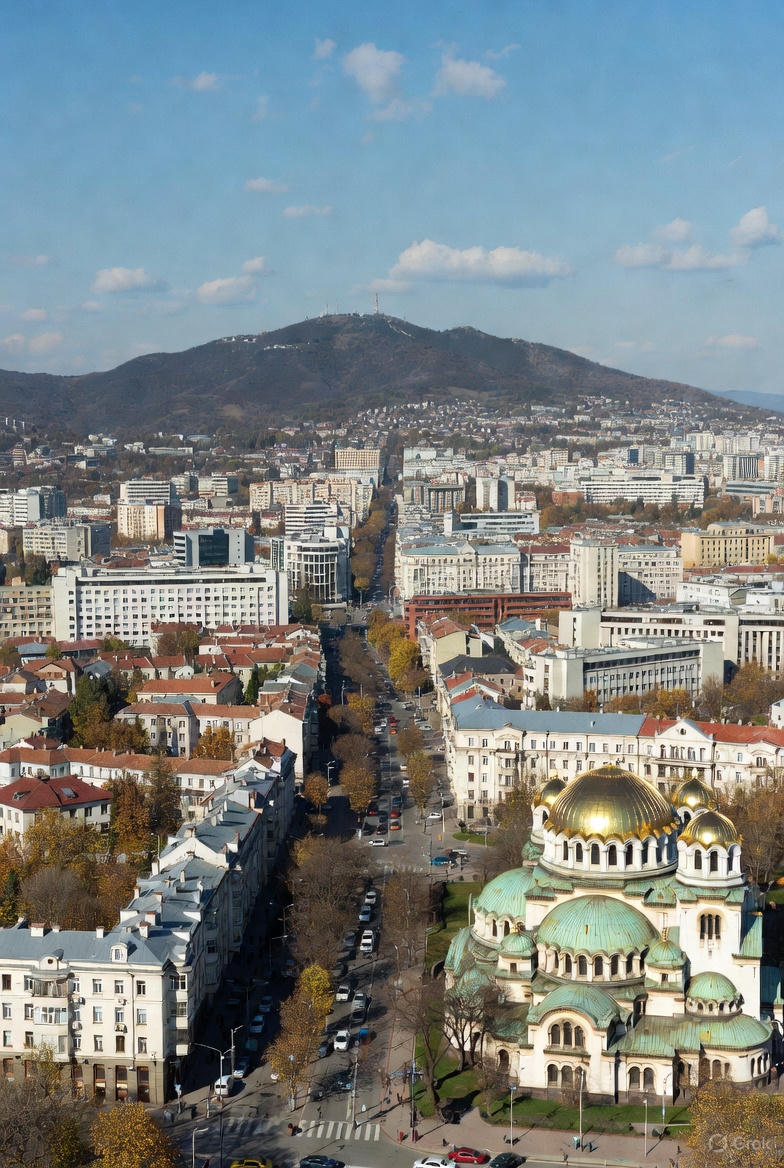Comprehensive Guide: Renting a Long-Term Apartment in Bulgaria

Bulgaria, a country nestled in Southeast Europe on the Balkan Peninsula, offers a diverse landscape that ranges from the sun-kissed Black Sea coast to the majestic peaks of the Rila and Pirin mountains, expansive rural plains, and vibrant yet understated urban centers. With a population of approximately 6.8 million and Sofia as its bustling capital, Bulgaria has become an attractive destination for expatriates, digital nomads, retirees, and locals seeking affordable living. The cost of living remains one of the lowest in the European Union, with long-term apartment rents averaging €300–€600 per month outside major tourist hubs, depending on size, condition, and location.
Renting long-term in Bulgaria—typically defined as contracts of 6 months or more, often extending to 1–3 years—differs significantly from short-term tourist lets. While the high season (June to September) inflates prices and reduces availability in coastal areas, the off-season (October to May) presents bargains and greater selection across all regions. This guide provides a step-by-step framework, regional breakdowns, seasonal considerations, legal nuances, and practical tips to secure a stable home. Whether you’re drawn to the seaside vibrancy of Burgas, the ski slopes of Bansko, the tranquil villages of the Rhodope Mountains, or the authentic urban life in Plovdiv, this article equips you with the knowledge to navigate the process confidently.
Step 1: Understanding the Bulgarian Rental Market Dynamics
Before diving into regions, grasp the overarching market. Bulgaria’s rental sector is largely private, with 85–90% of properties owned by individuals rather than corporations. Platforms like Imoti.net, Imoti.com, OLX.bg, and Homes.bg dominate listings, supplemented by Facebook groups (“Apartments for Rent in Sofia” or regional variants) and local agencies (nedvizhimosti). English-language sites such as Bulgaria-Property.com or Expat.com cater to foreigners.
Long-Term vs. Short-Term Distinctions:
- Long-term (6+ months): Requires a formal notarized contract (dogovor za naem), registration with the local municipality for address (lichesna karta or temporary residence), and often a deposit of 1–2 months’ rent. Utilities are transferred to the tenant’s name.
- Short-term (tourist season): Airbnb-style, furnished, all-inclusive utilities, but prices surge 200–400% in summer on the coast. These rarely convert to long-term without renegotiation.
Currency and Payments: Rents are quoted in euros (€) in tourist areas but paid in Bulgarian lev (BGN; 1 € ≈ 1.955 BGN). Bank transfers or cash are common; insist on receipts.
Tenant Rights: Under the Obligations and Contracts Act, tenants enjoy strong protections: 30-day notice for termination (unless breach), annual rent increases capped at inflation (unless specified), and landlord responsibility for major repairs.
Foreigner Considerations: EU citizens rent freely. Non-EU nationals need a visa (D-type for long stay) or residence permit, but a rental contract is often required to obtain residence—creating a catch-22 resolved by provisional agreements or agency assistance.
Budget breakdown (1-bedroom, furnished, central):
- Seaside (off-season): €250–450
- Mountains: €200–400
- Rural: €150–300
- Non-tourist cities: €300–550 Add €50–100/month for utilities (electricity, water, heating, internet).
Step 2: Preparation Phase – Documents, Budget, and Timing
Essential Documents
- Passport/ID: Valid for the contract duration.
- Visa/Residence Permit: For non-EU, a long-stay visa application requires a preliminary rental agreement.
- Proof of Income: Bank statements, employment contract, or pension proof (landlords favor stability).
- Reference Letter: From previous landlord (optional but persuasive).
- Bulgarian Phone Number: For viewings and contracts (buy a SIM at A1, Yettel, or Vivacom for €5).
- Bank Account: Open at UniCredit Bulbank, DSK, or Raiffeisen (free for basic); needed for utility transfers.
Budget Planning
Factor in:
- Deposit: 1–2 months.
- Agency Fee: 50% of one month’s rent (if used).
- Notary Fee: €20–50 for contract certification (mandatory for long-term).
- Utilities Setup: €50–100 initial fees.
- Furniture: Many long-term rentals are unfurnished; budget €500–2,000 for basics from JYSK or IKEA (Sofia/Varna stores).
Optimal Timing
- Off-Season (Oct–May): Best deals, especially November–February when landlords drop prices 20–30% to avoid vacancies. Coastal owners, reliant on summer income, are motivated.
- Avoid Peak Season (Jun–Sep): Coastal inventory vanishes; prices double. Mountain resorts peak December–March for ski season.
- Shoulder Seasons (Apr–May, Sep–Oct): Balanced availability and moderate prices.
Step 3: Regional Breakdown – Where to Rent and Why
Bulgaria’s regions offer distinct lifestyles, climates, and rental ecosystems. Below, we explore seaside, mountains, rural areas, and non-tourist cities.
3.1 Seaside (Black Sea Coast: Varna, Burgas, Nessebar, Sozopol, Sunny Beach)
Overview: 378 km of coastline with sandy beaches, mild Mediterranean climate (summer 25–30°C, winter 0–5°C). Population swells 5–10x in summer.
Long-Term Rental Nuances:
- Seasonal Swing: July–August rents for a 1-bedroom in Sunny Beach hit €800–1,200 (short-term). From October, the same drops to €300–500, often including parking. Many owners live abroad and prefer year-round tenants to cover maintenance.
- Varna (population 335,000): Cultural hub, universities, IT sector. Central 1-bedroom: €350–550 off-season, €500–700 peak. Neighborhoods: Greek Quarter (vibrant), Vladislav Varnenchik (affordable panel blocks).
- Burgas (210,000): Industrial/port city, less touristy. 1-bedroom in Lazur district: €300–450 year-round. Sarafovo suburb offers sea views for €350.
- Smaller Resorts (Nessebar UNESCO old town, Sozopol): Charming but summer chaos. Long-term scarce in old towns; newer complexes outside offer €250–400 off-season.
- Sunny Beach: Purpose-built resort. Off-season ghost town—ideal for remote workers (€250–350). Beware noisy summer conversions.
Pros: Sea access, fresh seafood, international airports (Varna/Burgas). Cons: Humidity, summer crowds, winter emptiness in resorts. Tip: Seek “целогодишен наем” (year-round rent) listings to avoid seasonal evictions.
3.2 Mountains (Bansko, Borovets, Pamporovo, Rila/Pirin/Rhodope Ranges)
Overview: Alpine terrain, ski resorts, hiking trails. Winter -5 to 5°C with snow; summer 20–25°C.
Long-Term Rental Nuances:
- Dual Seasonality: Ski peak (Dec–Mar) rivals coastal summer—Bansko 1-bedroom €500–800. Off-season (Apr–Nov) plummets to €200–350.
- Bansko (Pirin Mountains): Ski capital, gondola access. Old town apartments €250–400 year-round for locals/expats; newer complexes €300–500. Many UK owners rent long-term to cover mortgages.
- Borovets (Rila): Closest to Sofia (70 km). Studio €200–350 off-season.
- Pamporovo (Rhodope): Softer tourism. 1-bedroom €180–300.
- Villages (Dobrinishte near Bansko, Govedartsi near Borovets): Ultra-affordable €150–250, wood stoves, gardens.
Pros: Clean air, outdoor activities, low crime. Cons: Harsh winters (heating costs €100–200/month), limited jobs outside tourism/tech. Tip: Verify central heating (etz/centralno otoplenie) vs. electric—latter spikes bills.
3.3 Rural Areas (Danube Plain, Thracian Valley, Strandzha, Villages Nationwide)
Overview: Fertile plains, vineyards, forests. Continental climate: hot summers (35°C), cold winters (-10°C).
Long-Term Rental Nuances:
- Year-Round Stability: Minimal seasonality. Village houses with yards €100–250; apartments in small towns €150–300.
- Danube Plain (Veliko Tarnovo vicinity): Historic capital area. Renovated Ottoman houses in villages like Arbanasi €200–350.
- Thracian Valley (around Plovdiv, Stara Zagora): Agricultural heartland. Kazanlak rose fields villages €120–220.
- Strandzha Nature Park (southeast): Eco-living, near Turkey. Tsarevo hinterland €150–280.
- Depopulation Trend: Many elderly owners seek tenants for upkeep; negotiate inclusions like firewood.
Pros: Space, gardens, low costs, authentic culture. Cons: Poor public transport, limited amenities, language barrier. Tip: Rent via local kmetstvo (mayor’s office) or bazar.bg for deals.
3.4 Non-Tourist Cities (Plovdiv, Veliko Tarnovo, Stara Zagora, Ruse, Pleven)
Overview: Authentic Bulgarian life, universities, industry. Moderate climate.
Long-Term Rental Nuances:
- Stable Pricing: Little seasonal fluctuation (±10–15%).
- Plovdiv (380,000): European Capital of Culture 2019. Kapana district 1-bedroom €350–500; Kyuchuk Paris €300–400. Thriving arts/tech scene.
- Veliko Tarnovo (70,000): Medieval capital, expat favorite. Tsarevets area €250–400.
- Stara Zagora: Industrial, affordable €220–350.
- Ruse (Danube, near Romania): Elegant architecture €250–380.
- Pleven: Central north €200–320.
Pros: Culture, jobs, transport hubs. Cons: Air pollution in industrial zones. Tip: University cities offer September influx—compete with students or wait until October.
Step 4: The Search Process – Online, Agencies, and Viewings
- Online Platforms:
- Filter “дългосрочен” (long-term), set price/location.
- Use Google Translate for Bulgarian listings.
- Real Estate Agencies:
- Reputable: REMAX Bulgaria, Bulgarian Properties, Yavlena.
- Fee: 50% one month; they handle notary, utilities transfer.
- Direct from Owners: Cheaper, via OLX “от собственик”.
- Viewings:
- Inspect dampness (common in panel blocks), heating, water pressure.
- Photograph meter readings.
- Negotiate: Off-season leverage for 10–20% discount or inclusions (internet, furniture).
Step 5: Contract and Legal Formalities
Standard Clauses:
- Duration, rent, payment date (1st–5th).
- Deposit return conditions (within 14 days post-inspection).
- Inventory list (opis).
Notarization: Mandatory for contracts >1 year or to register address. Cost €30–60.
Utility Transfer:
- EVN/iNergy (electricity), Vivacom/A1 (internet), local water company. Bring contract, ID.
Address Registration (propiska): Within 5 days at local police for residence card (€5). Required for bank, healthcare.
Step 6: Moving In and Ongoing Management
- Internet: 100 Mbps fiber €15–20/month (Vivacom).
- Heating: District (TEZ) cheapest; electric most expensive.
- Maintenance: Tenant: minor repairs, bulbs. Landlord: structural.
- Insurance: Optional home contents €50/year.
- Renewal: Most auto-renew unless 1-month notice.
Step 7: Common Pitfalls and How to Avoid Them
- Scams: Never wire deposit without viewing; use escrow if abroad.
- Hidden Fees: Clarify who pays condominium fees (taksi poddrzhka €0.20–0.50/sq.m.).
- Language: Hire translator for contract (€20/hour).
- Panel Blocks (panelki): Cheap but insulate poorly—budget €50/month extra winter.
- Pets: Rare in cities; negotiate rural.
- Earthquakes: Coastal/mountain areas—check building year (post-1980s safer).
Step 8: Special Considerations for Foreigners and Digital Nomads
- Taxes: Non-residents declare rent if income source; consult accountant.
- Healthcare: EHIC for EU; private insurance €30/month.
- Coworking: Sofia (Betahaus), Plovdiv (Cowerk).
- Communities: InterNations, Expats in Bulgaria Facebook.
- Driving: EU licenses valid; international permit for others.
Conclusion
Renting long-term in Bulgaria rewards patience and off-season timing. The seaside offers summer escape with winter solitude; mountains blend adventure and tranquility; rural areas gift space and tradition; non-tourist cities provide balance. With rents 60–70% below Western Europe, robust tenant rights, and improving infrastructure, Bulgaria suits diverse lifestyles. Begin your search in autumn, prioritize notarized contracts, and embrace local customs—you’ll secure not just an apartment, but a foothold in a country where history, nature, and affordability converge.








